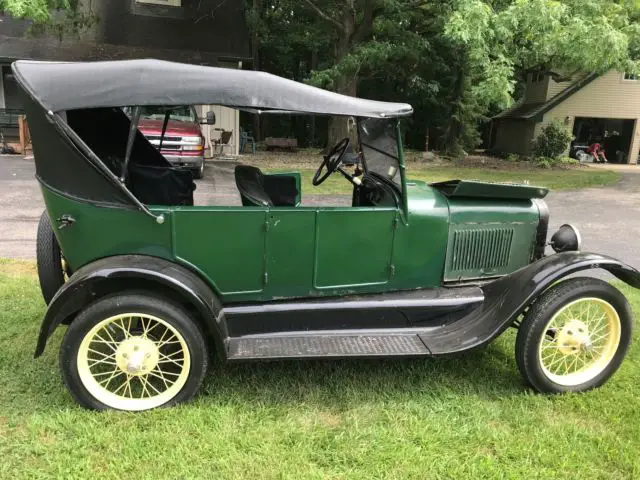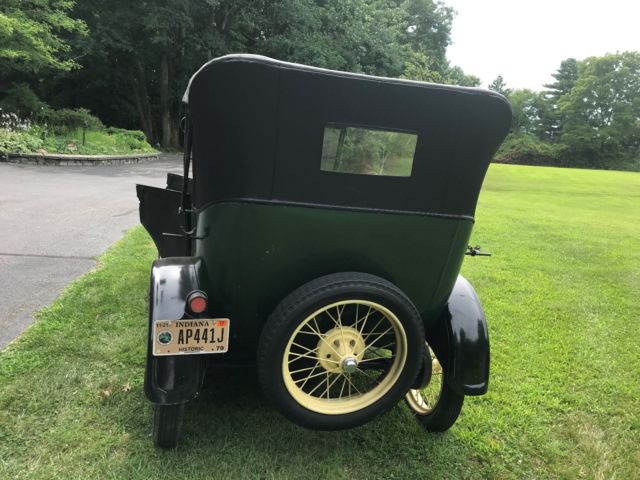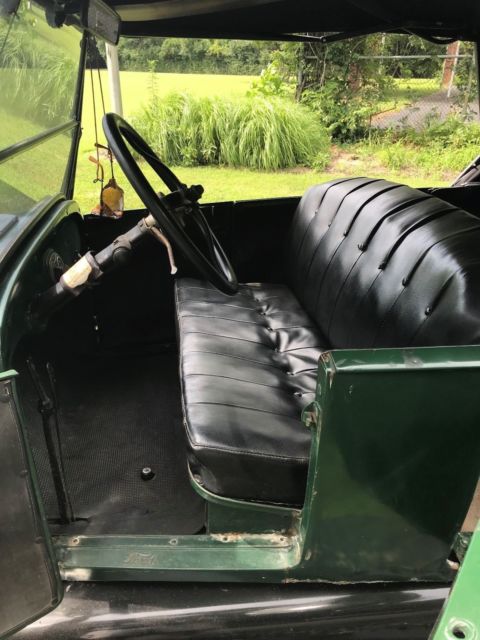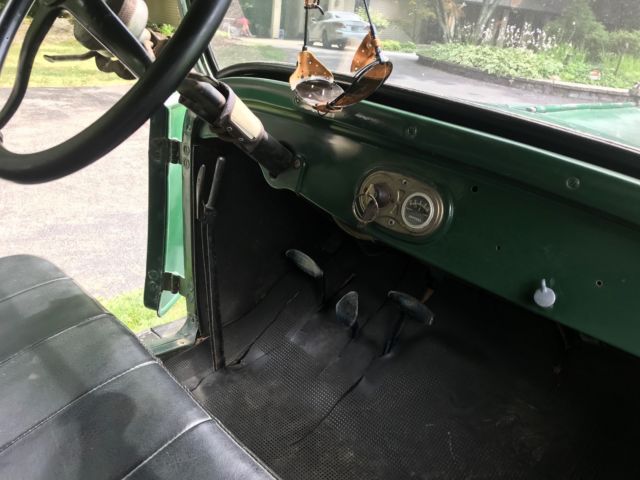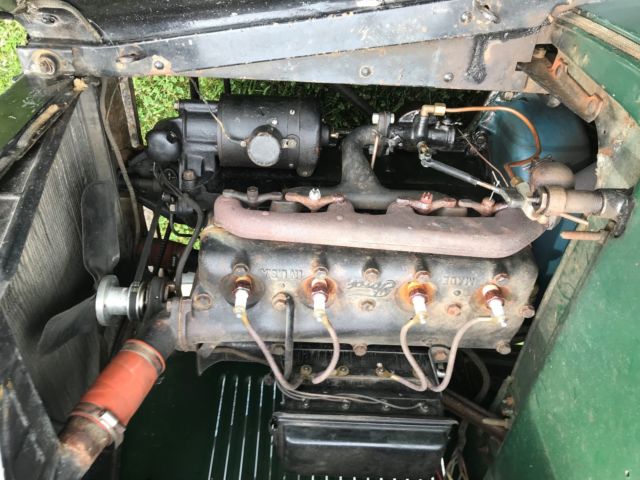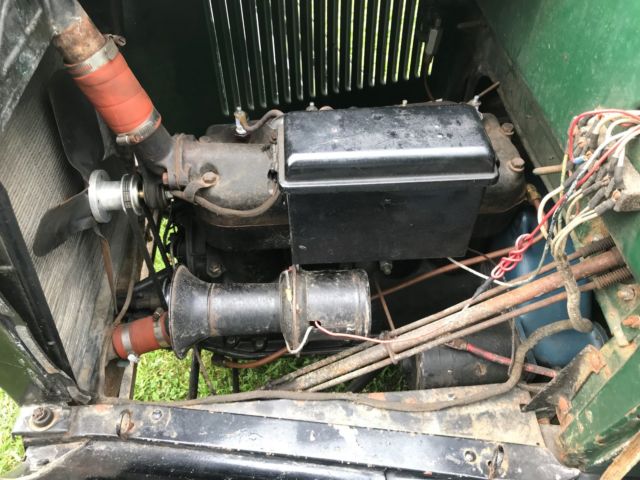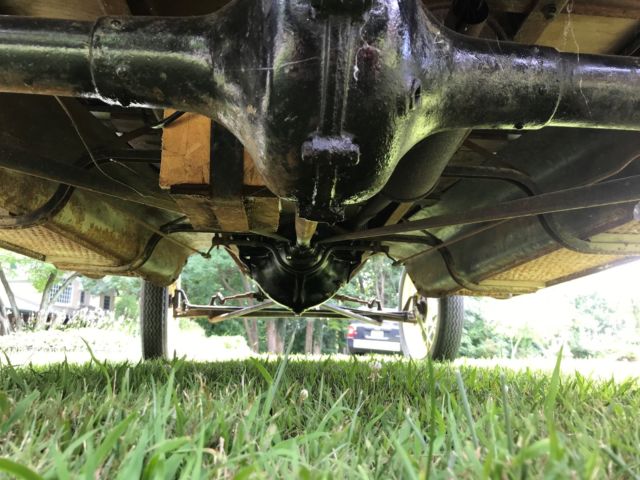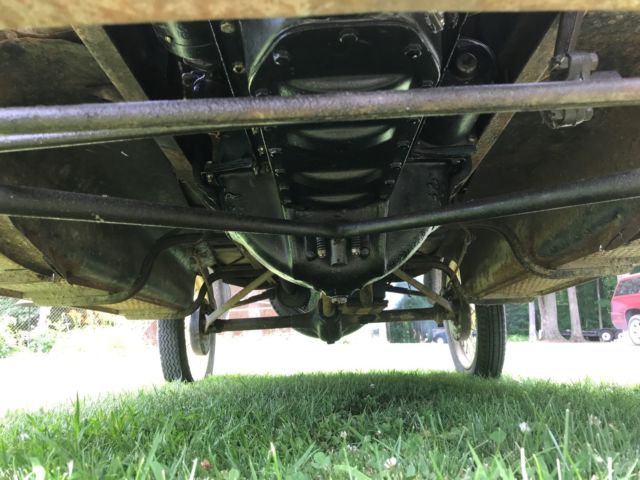1927 Ford Model T Touring *GREEN* Color of 15Mth Ford 90% +- Original Runs Great
| Make: | Ford |
| Model: | Model T |
| SubModel: | Touring |
| Type: | Convertible |
| Year: | 1927 |
| Mileage: | 99,999 |
| VIN: | 14812675 |
| Color: | Green |
| Cylinders: | 4 |
| Fuel: | Gasoline |
| Transmission: | Planetary |
| Drive type: | RWD |
| Interior color: | Black |
| Drive side: | Left-hand drive |
| Vehicle Title: | Clear |
| Item location: | West Lafayette, Indiana, United States |
1927 Ford Model T Additional Info:
1927 Ford Model T Touring
*GREEN* (Fifteen-Millionth Ford Color)
90% +- Original
Runs great
MODEL "T" HISTORY
Although the 1927 Model T, like this one, and its 1909 ancestor look radically different due to many styling changes, the basic elements that made the Model T a technological innovation and cultural phenomenon - a simple 4-cylinder engine, planetary transmission, the black body, and a flexible and strong chassis - had become liabilities in the automobile market. Consumers were no longer satisfied with just a basic car. Americans demanded faster cars with smoother rides and more amenities. By the mid-1920s, it was obvious to almost everyone at Ford that the Model T's time had passed. Henry Ford, however, retained his firm belief that the Model T was all that anyone would ever need. In an attempt to check declining sales, Ford engineers drastically restyled and modernized the car, introducing options such as electric starters, manually operated windshield wipers and reintroduced body color options. None of these ploys, however, allowed the Model T to compete with Chevrolets and Dodges that offered heaters, electric wipers, and a more comfortable ride. When production of the Model T ended at the Highland Park plant in May 1927, Henry Ford's "Universal Car" had introduced the world to the idea personal mobility and transformed where and how we lived. What began as a radical departure from the expensive pleasure cars of the wealthy and innovative simplicity ended as the butt of jokes. Henry Ford's car of the masses had been overtaken and passed by an industry and market it helped to create. The 15 millionth Ford Model T shown here is testimony to Henry Ford's basic belief in the need for an inexpensive, easily maintained, car of the masses. It is also a fitting epitaph for the car of the century. Material Steel (Alloy)Metal Glass (Material)
Leather
Rubber (Material) Color Green Dimensions
Diameter: 3.75 in (Bore)
Length: 4 in (Stroke)
Horsepower: 22.5 hp (16.78 kW)
Width: 68 in
Height: 76 in
Wheelbase: 100 in
Length: 141.25 in


